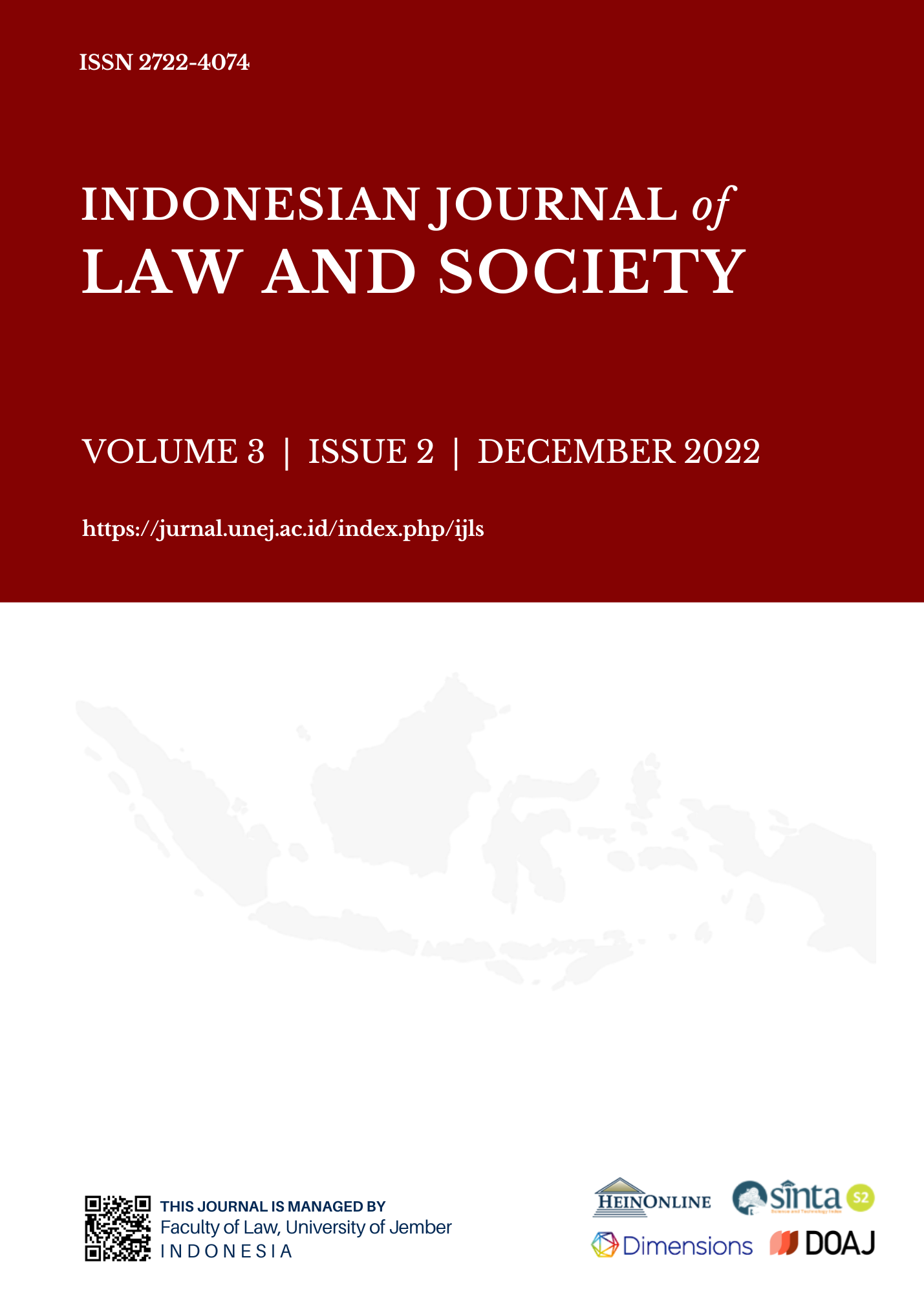Realizing a Polite Society on Social Media: ASEAN and EU Perspectives
Abstract
The flow of information technology development cannot be contained. Migration from the era of citizens to netizens is an impossible thing to avoid. This study aims to examine the relationship between the development of information technology in the digital era, especially on social media, and the Human Rights perspective. This research uses normative legal research methods to find ideal formulations and boundaries for netizens to become polite people interacting on social media. The results of this study show that Indonesian's right to an opinion on social media is a constitutional right that has been regulated in the 1945 NRI Constitution and the UDHR. However, freedom of speech does not mean that there are no limits. The limitations of freedom of speech on social media are through the limitations of norms, especially norms of politeness and decency, whose values are universal.

This work is licensed under a Creative Commons Attribution 4.0 International License.
The Indonesian Journal of Law and Society has CC-BY-SA or an equivalent license as the optimal license for publishing, distributing, using, and reusing scholarly work. Authors who publish with this journal retain copyright and grant the journal right of first publication with the work simultaneously licensed under a Creative Commons Attribution-ShareAlike 4.0 International License that allows others with permission from the publisher to share the work with an acknowledgment of the work's authorship and initial publication in this journal.




